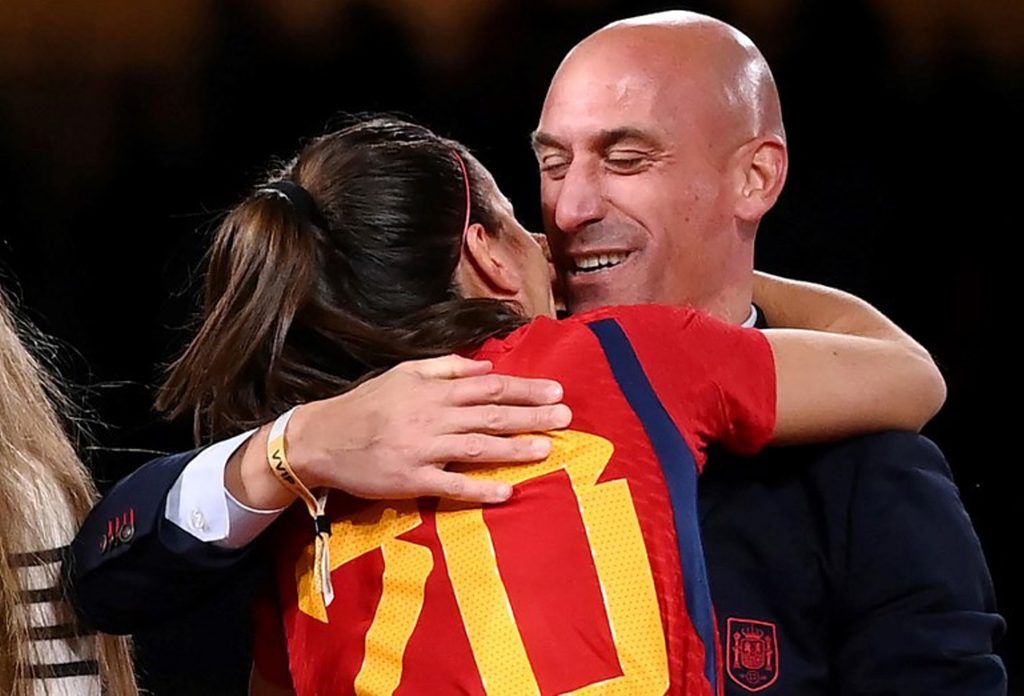Weeks after the head of Spanish football Luis Rubiales' forced kiss against the captain of Spain's women's team, Jennifer Hermoso, as the team was lifting the Women's World Cup, a seismic shift is taking place in the world of football.
What should have been a celebration of the achievements of the Spanish women's team has instead shone a light on the deeply entrenched macho culture that has plagued Spanish women's football for decades.
FIFA suspended Luis Rubiales, the President of the Royal Spanish Football Federation (RFEF) as they launched an investigation into allegations that he forcibly kissed striker Jennifer Hermoso.
Rubiales is determined to utilise the investigation to vindicate himself and substantiate his claim that the kiss was consensual. Hermoso has asserted that she did not give her consent to the kiss and felt violated and victimised by the incident.
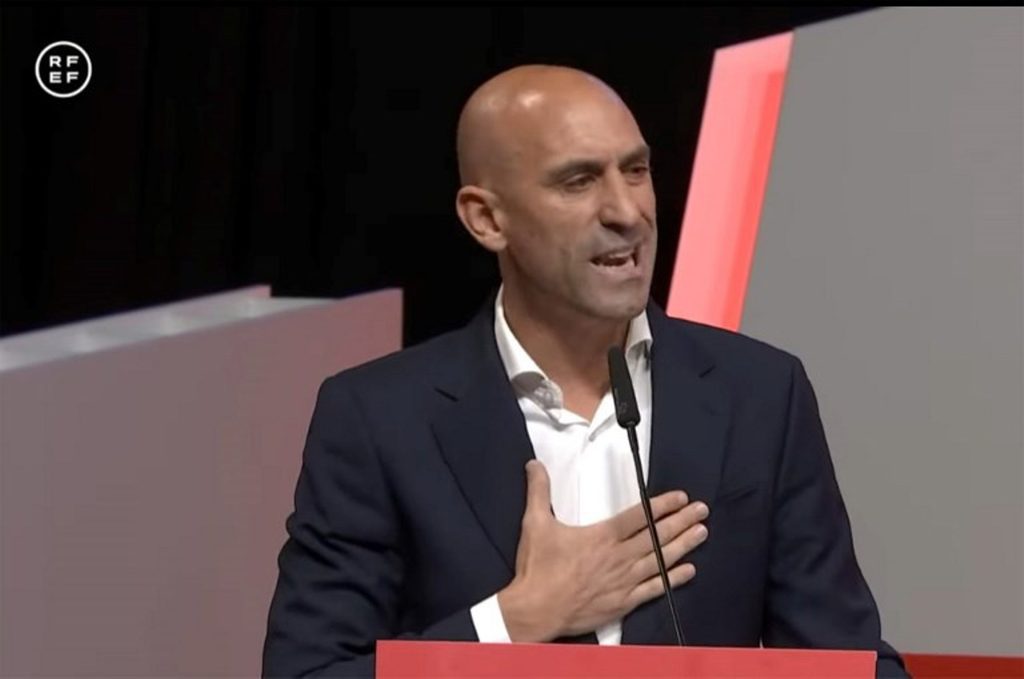
Luis Rubiales. Credit: Belga
The scandal, but also the defiant reaction from Rubiales, has ignited global protests and is being likened to Spanish football's version of the #MeToo movement.
Spain's women's national team has announced their refusal to participate in any further matches until Rubiales resigns. A majority of the coaching staff has also tendered their resignations. Concurrently, the Spain's government is pursuing Rubiales' removal in Spain's Administrative Court for Sports.
In solidarity with Jennifer Hermoso, who played a pivotal role in their victory against England in the World Cup final, women's groups have been organising rallies in Madrid. However, experts within the Spanish women's football sphere contend that even if Rubiales never returns to his position, the sport must undergo deeper structural transformations to uplift women players.
The incident has sent shockwaves through the world of football, forcing many national associations to take a hard look at their own culture and behaviour.
An issue in Belgium too?
While yet to experience its own #MeToo moment, Belgian football continues to battle sexism and inequality in football, with middling results.
In 2018, the Flemish Women’s Council, known as Vrouwenraad, bestowed its Auwch Award upon the Belgian Football Union, URBSFA. This particular cactus-shaped trophy, is presented to individuals or organisations that have prominently exhibited misogynistic statements, measures, or campaigns within the preceding year.
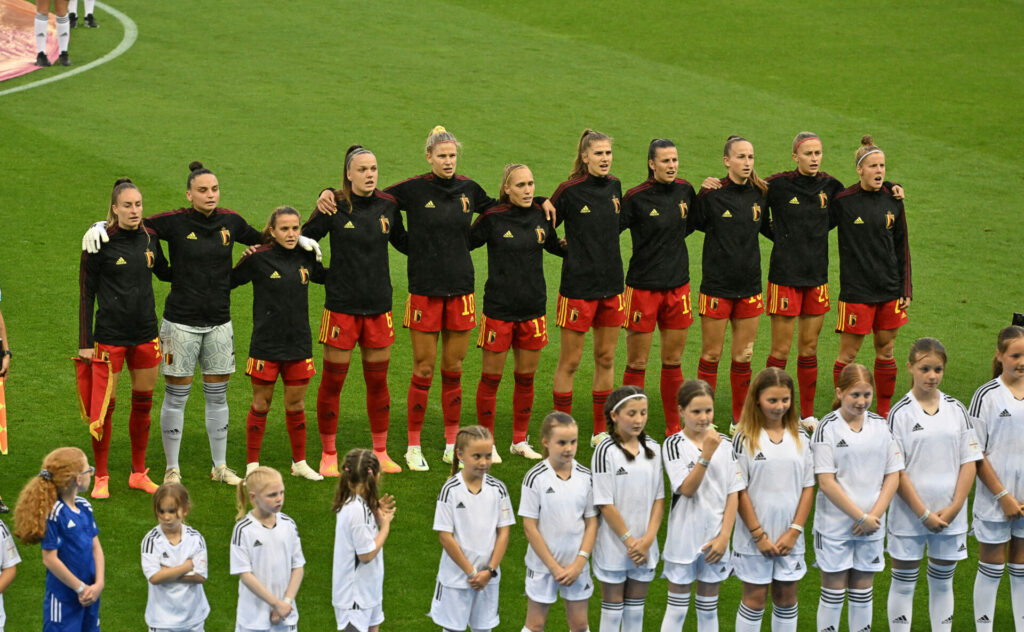
Belgium's national women's soccer team, the Red Flames. Credit: Belga / David Catry
The spotlight was cast on URBSFA by the Women’s Council due to its unequal policies regarding financial support and equipment.
A notable instance was highlighted: the women's national team, the Red Flames, was compelled to participate in Euro 2017 using gear from the men's team, the Red Devils. This resulted in ill-fitting jerseys, not tailored for the female players, an issue which the Vrouwenraad strongly criticised.
Since then, the Red Flames have been outfitted with jerseys specially designed for them, a step forward in addressing the earlier equipment disparity.
Equal pay
The Council further decried the disparities in allowances and salaries, highlighting the glaring inequality in remuneration. Despite similar training regimens and field performance intensity, the Red Flames received only a fraction of the compensation afforded to their male counterparts.
In contrast, Norway's football federation made a groundbreaking announcement in October of that year, pledging equal pay for both male and female players. This move prompted Belgium's federation to respond, explaining that a significant portion of the earnings generated by the Red Devils was channelled towards the Red Flames. It was noted that many of the Red Flames players were not professionals and were thus receiving an allowance from the federation as compensation.
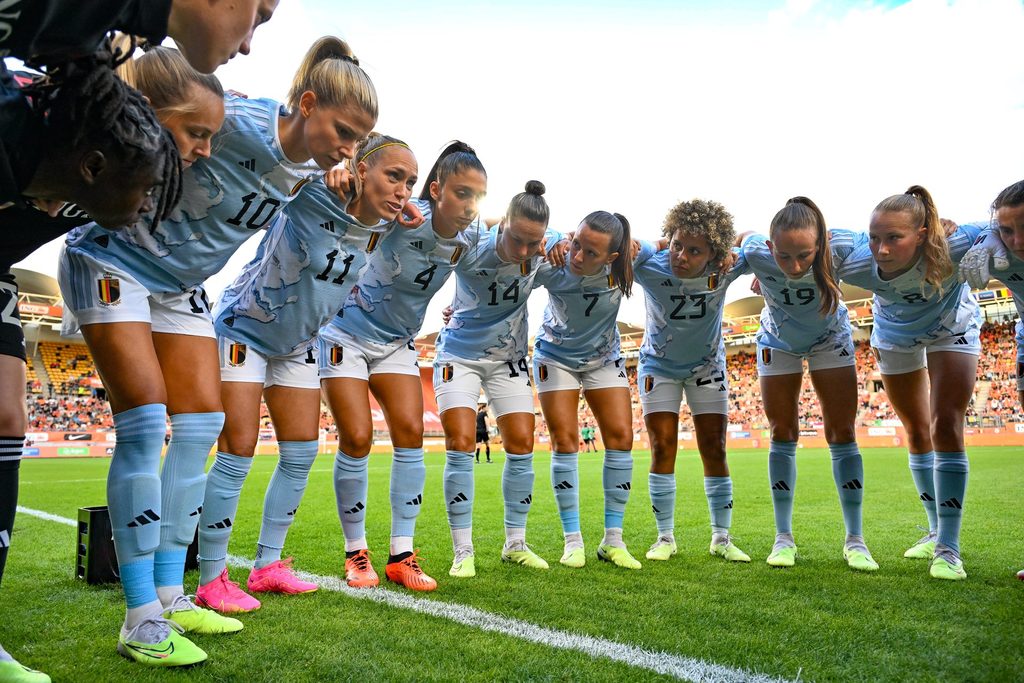
The Red Flames before a game against the Netherlands in July. Credit: Belga / David Catry
The issue of pay parity has sparked discussions not only in Belgium but also in Denmark and the United States.
While Belgian football administrators staunchly argue that men's football holds superior economic value compared to the women's counterpart, the Council prefers to champion the adoption of a long-term perspective, investment in women's football, and then reap even greater rewards in return.
'Go play with barbies'
However, sexism still remains rife in parts of the Belgian game. The experiences Nathalie De Volder, a 24-year-old Belgian referee, has faced underscore the sexism that is still prevalent within the sport.
In an interview with the Royal Belgian Football Association website earlier this year, De Volder candidly shared that instances of sexism are a monthly, if not weekly, occurrence in the men’s league where she officiates. The resilience required to be a female referee is tremendous, she notes.
The derogatory terms hurled at her, like "whore," "bitch," and belittling comments like "go play with Barbies," demonstrate the regular abuse she endures.
Nathalie maintains her composure on the field but makes it a point to confront individuals who make sexist remarks after the game. She acknowledges that ignoring such behaviour will only lead to the extinction of female referees and a reduction in girls playing football.
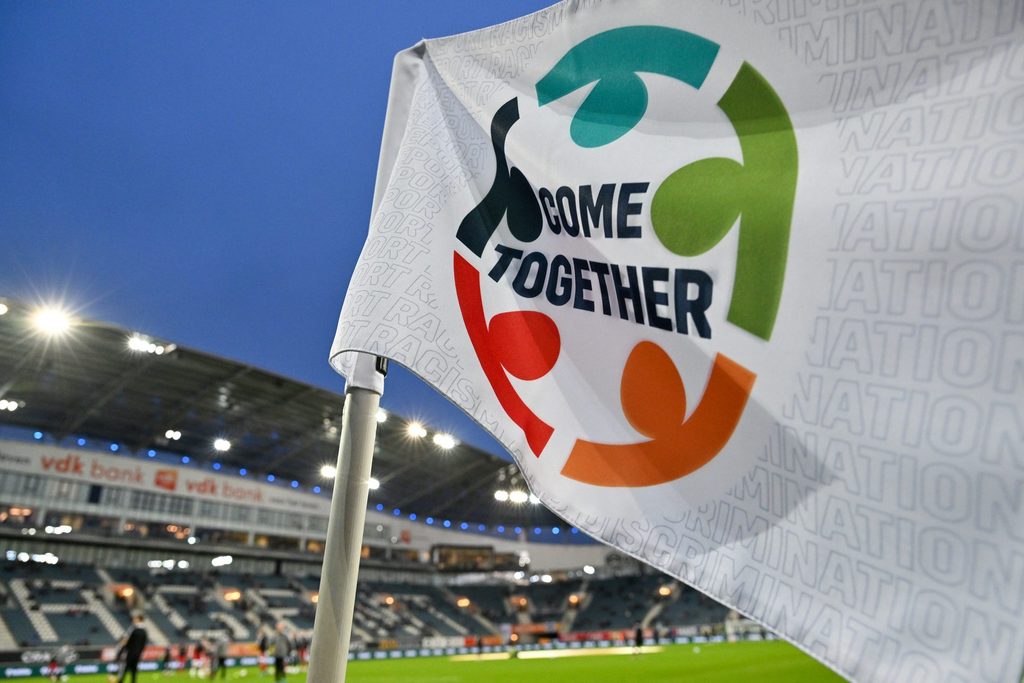
Credit: Belga / David Catry
Nathalie is an active contributor to the Royal Belgian Football Association’s Come Together campaign against all discrimination and abuse in sport. Her participation in the campaign is driven by her desire to spotlight this issue, address it head-on, and effect change. She feels a responsibility to empower girls and women, teaching them not to be stifled by prejudice and to challenge inappropriate conduct.
Now more proactive in lodging complaints, when necessary, Nathalie firmly believes that progress requires action, something that has been noted by the Flemish Women’s Council.
"We have noticed a number of positive developments, such as the recruitment of a menstrual coach for the women's team of Club Brugge, the promotion of the women's matches by a number of clubs," Kim De Weerdt, the council's director, told The Brussels Times. "We see that a lot is changing, certainly at the local level. But there is still work to be done, such as equal pay for female players."
"The media also play an important role in this: women's football is less in the public eye and the coverage of women's football is full of stereotypes,” she added. "But we look to the future with hope. We look forward to the mark that Pascale Van Damme will make as the new president of the Belgian Football Association. Van Damme's ambitions for women's football are high. That makes us optimistic."

